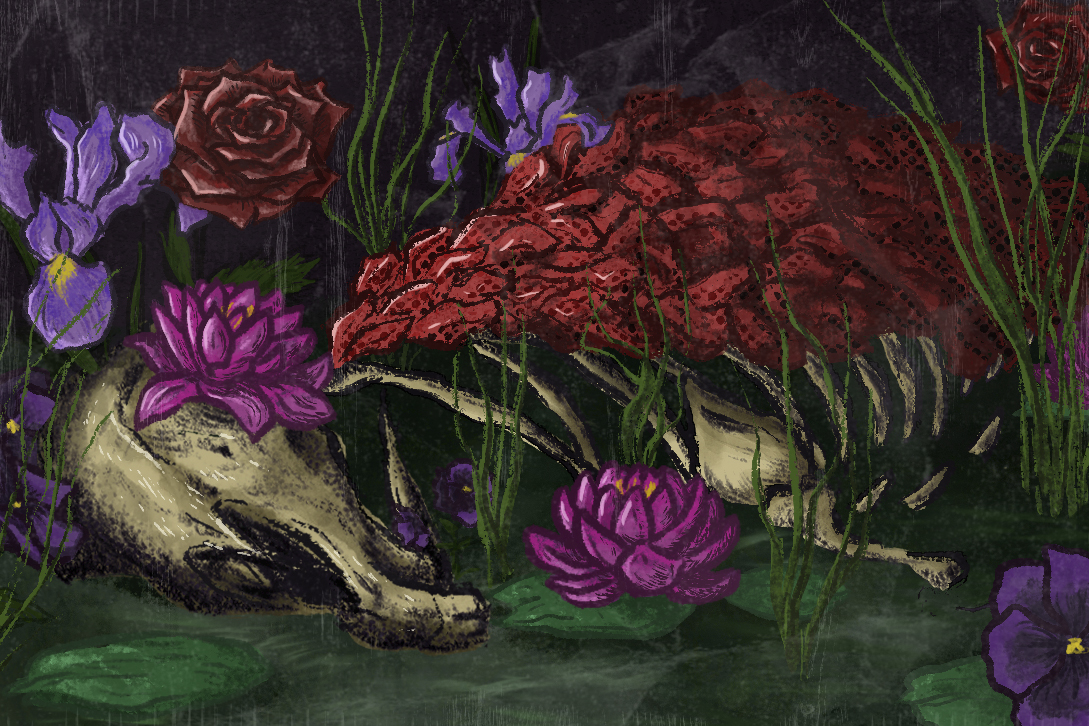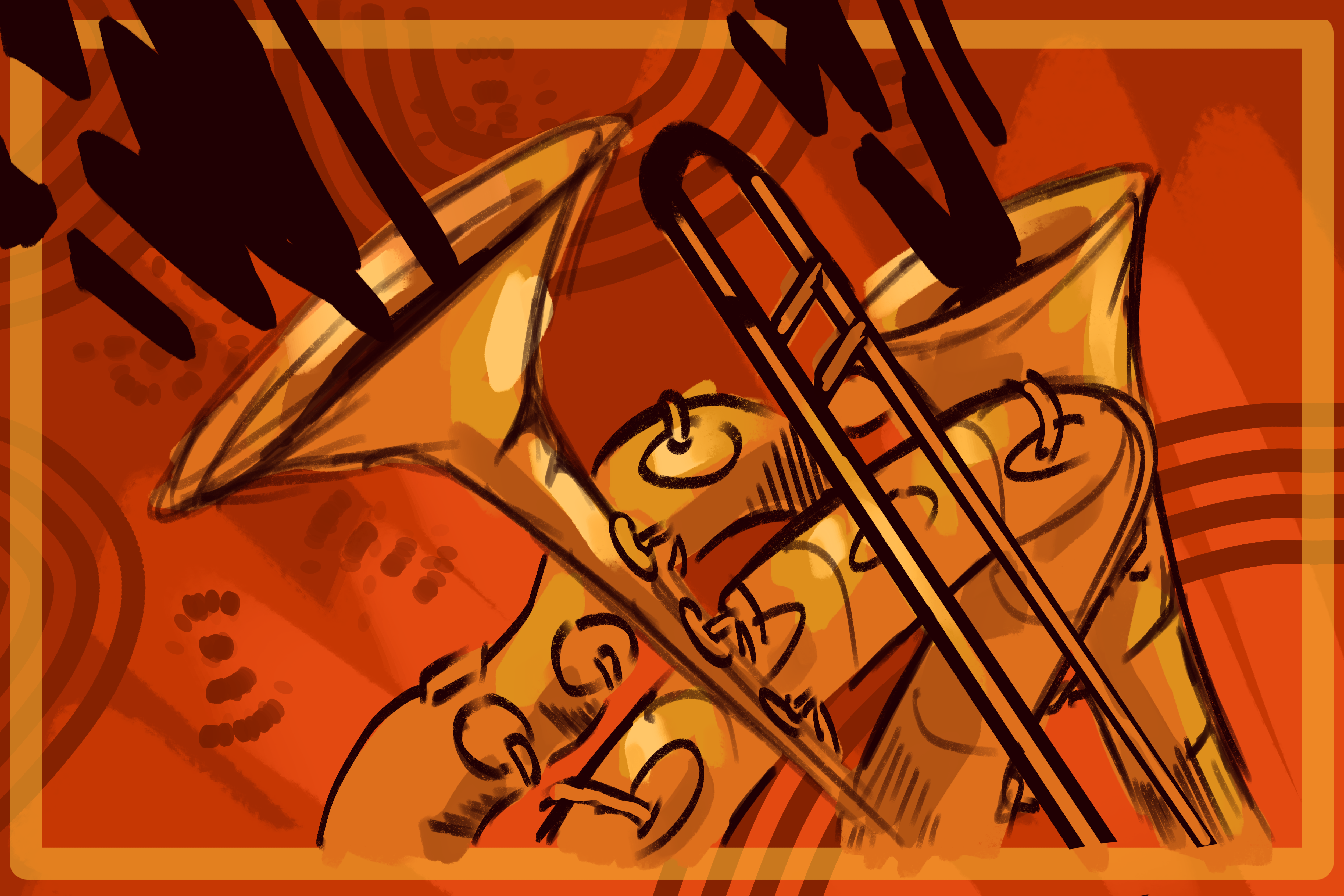Just because COVID-19 stopped the world, it doesn’t mean music stopped with it. Hayley Williams, a musical artist most well-known for being the front-woman of Paramore, released her debut solo-album on May 8, 2020, and it’s most definitely an excellent album to have on repeat during these “unprecedented times.”
Post-divorce in 2017, Hayley’s life changed significantly. Paramore released After Laughter in the same year, and going through a divorce and touring their latest album was no cup of tea for Williams. In 2019, Paramore announced their break (in their words, “No, it’s not a break up announcement, weirdos”), which has given each of the members the time to spend with their families and friends that they have not been able to see over the years with back-to-back tours. This set the stage for Hayley’s 2020 release of her first solo album, Petals for Armor.
Petals for Armor was introduced to the world with only the first five tracks, with motifs of wrath, mercy, grief, memories, and desire. Though Petals for Armor does not hold to the same pop feel as Paramore’s After Laughter, Williams’ solo album still keeps true to the alternative, orange-haired front-woman of Paramore we have known and loved for the past 14 years. In the aftermath of divorce, Hayley Williams has had to go through the five stages of grief: denial, anger, bargaining, depression, and acceptance—all of which are apparent in the tracks’ themes. While many albums follow an exponential pattern of topic and emotion, Petals for Armor’s tone and topics are sporadic, just as that of the five stages of grief that appear at random stages in the healing process. The album separates itself into a three part series: Petals for Armor I, Petals for Armor II, and Petals for Armor III.
Petals for Armor I most strongly identifies itself with the most primal emotions: anger, fear, sadness, loneliness, sex, and attraction. The song “Simmer” starts the album with a contrast between wrath and mercy— the whispers in crawl under your skin. “Simmer” is knowing when to “wrap yourself in petals for armor,” versus becoming the fire that takes everyone, including oneself down. The assertion that petals, something so thin and delicate, could be equated to armor, something so strong and fortible is a contradiction in itself. In symbology, flowers typically are associated with femininity and mother nature, both forces that are typically associated with weakness (though, incorrectly), which appears to be a further examination into the depths of feminine strength, hardship, and the social pushes for the feminine to continue to be perceived purely as delicate, nothing fortible like the “masculine” armor. “Leave it Alone” is a reminder of the loss of the people we love in our lives, the eminence of forgetting and loneliness, contrasted by the assertion in “Cinnamon”, “I’m not lonely babe / I am free / (Finally).” The third track, “Cinnamon,” is much more upbeat than the first two introductory songs—describing her life alone which includes “[talking to her] dog, (he don’t mind).” The melody and tone shifts once again with the last two tracks in Petals for Armor I. “Creepin’” makes references to mythological creatures such as vampires which further relates to the topic of the song clearly stated in the lyrics, “You had a taste but you don’t want to forget it / Oh, just keep on sucking on the memory of him.” The described attraction is vampiric, parasitic!, “Too much of anything, you’ll never know how to quit,” and holds the negative denotation that are commonly associated with ancient tales of vampires. The concluding track, “Sudden Desire,” begins openly with primal sexual attraction, which aligns itself with the introductory track, not knowing if she can prevent herself from pursuing her attraction towards the alluded individual. Each song in part one is filled with either regret, anger, or loss, whether it be familial, romantic, or personal for Hayley herself. It’s certainly a raw way to begin her debut as a solo artist.
Petals for Armor II has a completely different tone than part one—it begins with “Dead Horse,” a song with a piano tune that feels reminiscent to the sound of Paramore’s last album, After Laughter. While After Laughter’s raw emotions were masked with their positive, upbeat musical rhythms, making the album inherently more passive, “Dead Horse” is more aggressive in lyrical assertion, for example,“I beat it like a dead horse, I beat it like a drum / Oh, I stayed with you too long / Skipping like a record to your sh*tty little song.” “Dead Horse” is an utter revival and disconnect from the life Hayley once knew with her ex-husband, and brilliantly done. Through the rest of Petals for Armor II, Williams delves into symbiotic relationships—herself and friends, herself and past lovers, and more importantly, the balance between herself and herself. “My Friend” reveals the supportive aspects of Hayley’s personal connections, while “Over Yet” is a call out directed towards herself and her audience, “Baby, if you wanna / To get out of your head, yes, break a sweat / Baby, tell yourself it ain’t over yet.” There are always two representations of oneself: the outside that we present to the world, and the inside that can eat us away from the inside out— like the classic analogy of the angel and the devil perching on our shoulders and whispering in our ears. How do you break a negative bond between your-own-self, your own thoughts, and your own mind, and how do you assert the positive you over those same thoughts? These are the questions Hayley asks herself in “Over Yet.” It is quite the work-out, and it’s no easy task. Her awareness of this power struggle is almost soothing. She looks back on her past relationships in both “Roses / Lotus / Violet / Iris” and “Why We Ever,” which both reveal different reflections on her romances, wondering why she ever got into situations, and how she could have ever lost sight of what was important and right in front of her.
Petals for Armor III is a comprehensive conclusion to the album, beginning with “Pure Love,” which similarly to the introduction of Petals for Armor II, feels just a little bit closer to the Paramore sound that we became familiar with in After Laughter. The concept of symbiosis appears again in all of the remaining tracks—realizing that she must not be so guarded if she is to find “Pure Love,” changing her habits so much that the following song “Taken” appears to be a follow up to her own story as an announcement and celebration of monogamy with someone new. “Sugar on the Rim” is just as cheerful as the previous two songs, just with extra vocal distortion that reminds me of Lady Gaga’s “Born this Way” era in the first verse–a little raspy with an electronic overtone. It’s like a silver lining, no longer feeling damaged and bruised from her prior engagements, more of seeing those bruises as a learning curve. Upon first listen, the beginning of “Watch Me While I Bloom” has similar vocals to Björk, but it quickly transitions to a pop sound full of synth and the strong suggestion to move while listening. It’s a little more positive than “Dead Horse” in Petals for Armor II, but it is a good ol’ f*ck you from Hayley. To conclude her debut album, we end on “Crystal Clear,” a slower song in comparison to the rest of Petals for Armor III, beginning with the sound of a church organ. “Crystal Clear” ties itself to “Pure Love,” no longer living in fear, but jumping right into her life, into love, without fear. There is some irony of something being crystal clear rather than what life and love really is.
The album is meant to be listened to as sections—different sections of her life, different sections of Hayley’s healing. Not only is this a brilliant alt-pop album, but it shows such pure insight to the emotions of Hayley Williams. I feel as if I read her diary with fluffy flourishes, extended metaphors of the contrasts between femininity and the symbols that have been chosen to represent the feminine throughout thousands of years of literature, all ending with a solid, punchy conclusion that affirms her own existence as an individual who does not have to depend on anyone else to exist in this world ?. We began with a wilted flower who had lost all hope, and now we watch her as she blooms into the person she is now comfortable being. I am beyond impressed by her debut solo album, and I would 100% recommend giving Petals for Armor a listen before she goes on tour in 2021.





